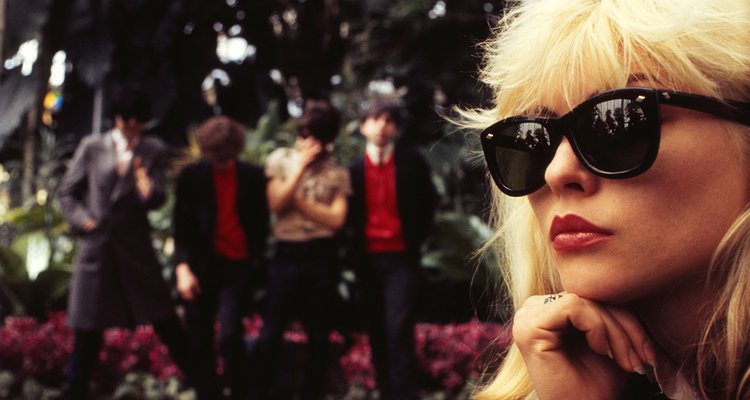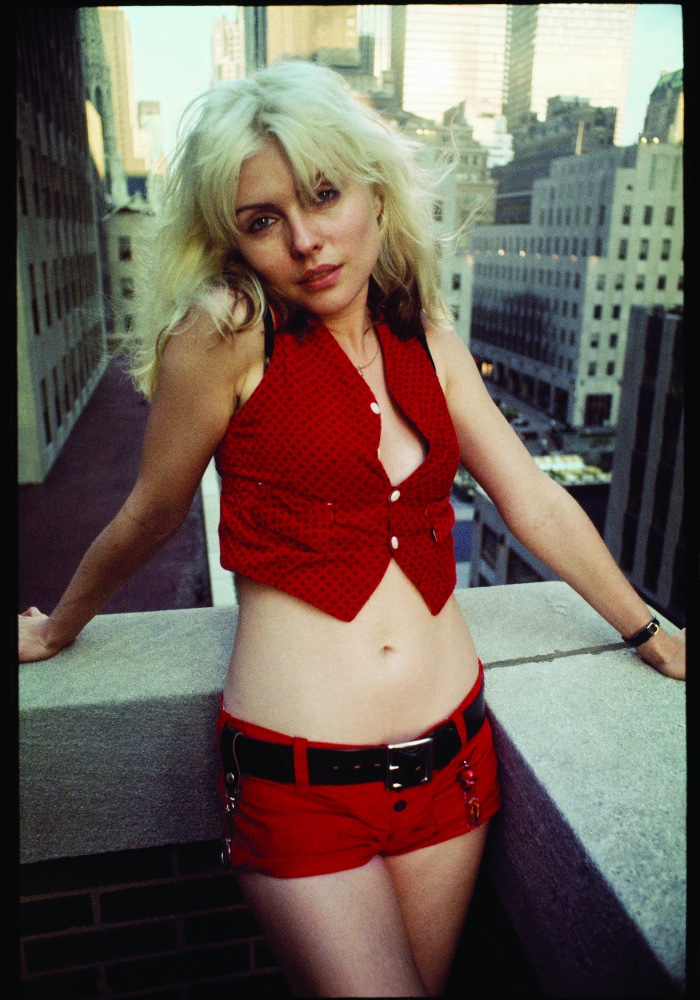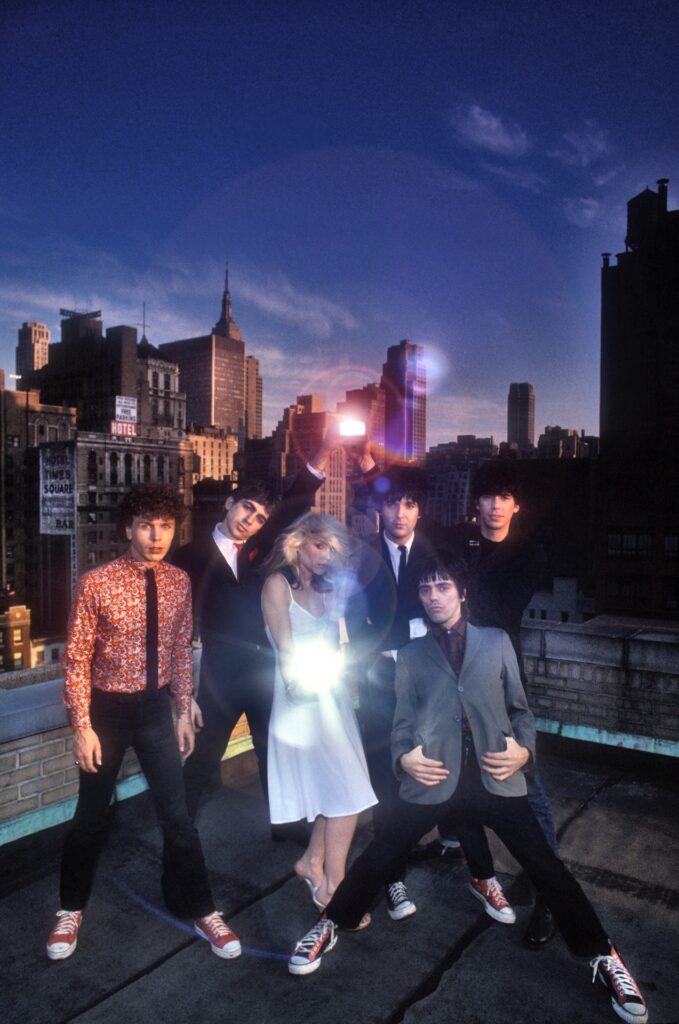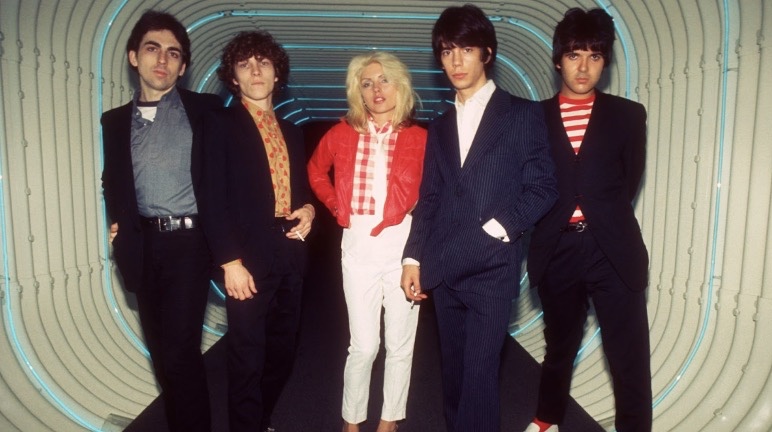Debbie Harry on Blondie, The Stilettos, being label-free and ageism
EXCLUSIVE: We chat to the pop icon about bleach (“my advice: use the minimum amount of time that they suggest!”) and why she wants to work with Miley

“I’m in the phone booth, it’s the one across the hall! If you don’t answer, I’ll just ring it off the wall!” Debbie Harry’s deliciously pissed-off vocal on Blondie’s 1978 top-five UK hit Hanging on the Telephone replays in my mind as I dial the New York number provided for me at our scheduled interview time and the line is engaged. (So too their 1980 number one, Call Me.)
Not that I’m angry – just nervous. After years of Zoom chats, I’d forgotten how stressful and impersonal phone calls can be. Am I being stood up? If I get through, will we click? What if she hangs up on me? When a symbol of cool like this decides you’re lame, there’s no getting over it…
Then, on my third attempt, we connect, and the most famous frontwoman in rock – or rock with a pop/avant-garde/reggae/hip-hop bent, depending on where in their 40-million-selling discog you land – greets me with an easy, breezy “hi, how are you!?” before proceeding to answer, with amazing humour, every single one of my questions. From the silly (was iconic gay photographer Robert Mapplethorpe, who once snapped her, unbearably sexy in the flesh? “Very sexy, very handsome. I think he wore leather practically all the time!”) to the sillier. (Is it true she once rocked a binbag as a dress? “And a pillowcase! I have no scruples.”)
Here, in a wide-ranging chat ahead of the release of new Blondie box set ‘Blondie: Against the Odds 1974–1982’, the 77-year-old beauty queen schools us on how to take the perfect photo, reveals why she doesn’t like to label her sexuality, revisits her rarely-remarked-upon days as a girl band member in The Stilettos, and explains why she “wouldn’t object” to Miley Cyrus playing her in a (seemingly likely to happen) Blondie biopic… If it comes to fruition, you heard it here first!
What songs from ‘Blondie: Against the Odds 1974–1982’ would you prescribe someone depressed at the state of the world?
A version of ‘Heart of Glass’ is on there. I do rely on that. It’s about changing your mind, and strength. You’re right, we’re living in such hateful times. I just can’t believe it.
What do you think of Miley Cyrus’s version of Heart of Glass?
I think she did do a good job. What I admire about it is, she made it her own. That, to me, is the ultimate compliment. Because she understands and relates to it but can only do it her way. She’s got a great voice.
She duetted with Stevie Nicks. Would you be up for doing something with Miley?
Yeah. I would, actually. I haven’t heard her duet with Stevie. What did you think?
It’s fantastic – a combination of Stevie’s ‘Edge of Seventeen’ and Miley’s ‘Midnight Sky’!
I’ll have to get to it!
The box set also looks at the visuals of Blondie, with previously unseen photographs. You’ve been shot by Annie Leibovitz, Andy Warhol… Do you have a favourite photograph of yourself?
I do. Obviously, it’s going to be one or two from [Blondie member and Debbie’s ex-partner] Chris Stein. He took a photograph of me on the top of Radio City Music Hall. I just love the expression coming out of my eyes. It’s so beautiful, and could only really come out for Chris, towards him. It’s a very special photo.

Other than a wind machine, what’s your advice to someone who hates having their picture taken, but who wants to own the camera?
[Laughs] It’s funny you say that, because when I started, I had the same problem. I hated having my photo taken [until] working with Chris, who I felt very comfortable with. You have to use your imagination. Think of something that’s wonderful to you. Tilt your chin, turn your head to the side. A three-quarter shot is always flattering. Smile mysteriously, or be completely overjoyed – pick an attitude, and just do that! And practise.
What are your memories of working with Divine [her co-star in John Waters’ Hairspray]?
Divine had a very generous nature. Again, because he knew John, someone he’d grown up with, they came up together, there was a great deal of comfort with each other. They knew what they wanted from each other. I’m sure there were dark moments in his life, but he had strength of character. I’d see him walking around midtown Manhattan in a gigantic kaftan! He was himself, and fearless about it. When you’ve been hit with every type of disapproval… he made a decision about who he was. And that’s that.
Have you ever wondered what your life would have been like if you’d achieved the same kind of success with your girl band, The Stilettos, as you did with Blondie?
Well… hmm. I guess it would’ve been more showbizzy, in a way. [In Blondie], I went to the most androgynous side of femininity because I always felt I was representing people in my band, and it was always men, for the most part. When we were doing The Stilettos, we were being as sexy as possible at that time. And flirty. A lot of flirting going on, which was fun. The backup band was invisible, basically. It was a girl group. Part of the reason I wanted to do Blondie is because I wanted to think of myself as an instrument, as a singer. That’s the reason bands have a sound. You know when you hear a good band – they have their own sound. Which I think we somehow achieved. I guess If I’d been in The Stilettos, they’d have had their own sound, vocally. We certainly had an interesting combination of musical approaches. I was pretty straight rock, Elda [Gentile] was more cabaret and Roseanne [Ross] more gospel and blues. Originally, it was just cover songs, but then we started writing a few songs of our own and it became clear who we were!

Speaking of androgyny, and representing male band members, I wonder why LGBTQ+ people are so drawn to Blondie. Was that fanbase visible to you when you were coming up? And did you encounter trans people, specifically, in the 70s and 80s?
Oh, yes, very much. New York City was, as you can well imagine, a hotbed of LGBTQ+ [people], even though there wasn’t that kind of a group identification then. They were always part of the scene. A lot of performers came out of that.
Do you consider yourself part of the LGBTQ+ community?
I don’t like the idea that I have to separate who people are, sexually. I find that: ‘Gee, I really like this person, and have liked them for a really long time.’ That’s sort of the way I’ve tried to live my life.
It’s so interesting that that’s how you’ve always felt, as there are so many kids today coming up who take that exact approach, and it’s amazing to see. Some people think ‘Why even have words for it?’ I’m all for that.
Yeah. I like that very much, too. And especially in today’s climate. Because I can’t believe what’s going on in this country. What is this fear and loathing? It’s mind-boggling, and beyond disappointing. They’re going after women, too. There are only a few people in this world who are safe, and those are white men. We’re all up for grabs.
I find it fascinating that you found success in your late 20s and early 30s. Some people start slowing down in their 30s, and others feel like they’re just getting started! Is that how you felt when it started blowing up?
I suppose I did. I had days of complete fear and terror, wondering if anything was going to happen. And then, when it hit, working like a dog, ploughing through, and trying to enjoy everything that was going on. I worried about being accepting for being ‘elder’. In a way, I really admire younger artists who find themselves in their teens or early 20s. But we’re on our own schedule. Our time code is deeply imprinted. Why should you demote yourself, or make your opportunities less, just by what your age is? Ageism is another thing. But I understand: the older you get, the harder it is to do a lot of things physically. But you can certainly do a lot more mentally.

When I saw you guys live at the O2 in the spring, I was blown away. How you travel around the world and do those shows – I wouldn’t have the energy!
You would. I’ve found you just rise to the occasion. It’s like being in the army. Troop manoeuvres. You’re a group with the same purpose, goal, energy. And I can’t help but think how lucky I am to, number one, be performing music, and to people that like it! It’s an amazing, beautiful, lucky thing I’ve had in my life. That gives you a lot of energy. When you finish a tour and come home, and you’re not on that schedule any more, you have to keep yourself busy. You sort of crash, actually. A postpartum tour thing. You think: ‘Oh my God… what’s it all about?’ [Sings] “Alfieeeee!”
I’m thinking of bleaching my hair. Any do’s and don’ts?
My advice is: use the minimum amount of time that they suggest. Then give yourself a day or two, and then if you want to advance the colour and make it lighter or put a toner on it, let your scalp rest.
What can fans expect from your rescheduled In Conversation events later this year?
No holds barred! There are a few things I wouldn’t want to talk about, but not many.
Finally, what does the future hold for Blondie? Maybe a biopic in the vein of Bohemian Rhapsody?
I don’t know if I’d want to do one exactly like that. But I’m sure we’ll put something together. I have to say, I really enjoyed the Elton John one and the Queen one very much. We have a lot of great stories to tell, and it could be a lot of fun. We’ve obviously thought about it and have been approached. To find the right filmmaker and feel: “They get it” and move ahead – we’re heading in that direction.
I’ve got to put it out there: Miley is the age you were when you broke out. Could she be a good Debbie Harry?
I think she’s maybe too much of a star herself! But I wouldn’t have any objection to it. She has many facets to her: performing, working as an actress. I really couldn’t say. There are too many variables for me to make a judgement, other than the simple [fact] that, of course she can do it. She’s totally capable.
Blondie: Against the Odds 1974-1982 is out on 26 August.
The September/October issue of Attitude is available on newsstands and to download and order in print now.
